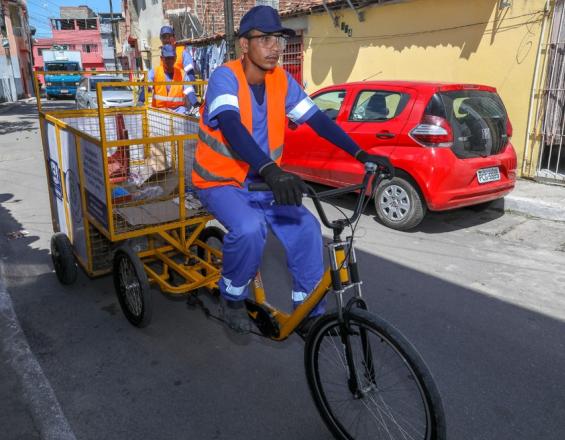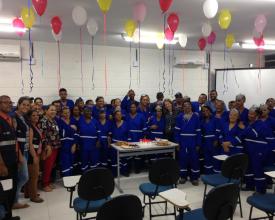
Solidarity Selective Collection Program for All Neighborhoods of Jaboatão de Guararapes - Pernambuco

Jaboatão dos Guararapes is a municipality in the state of Pernambuco. It occupies an area of 258.7 km², with a population of approximately 697,636 inhabitants, according to the IBGE 2018 census, making it the second most populated municipality in the state. The Municipality of Jaboatão dos Guararapes, through the Municipal Secretariat of Social Assistance and Citizenship, has implemented the Selective Collection Program as a universalized productive inclusion policy aimed at promoting sustainable cooperativism. The innovative aspect of the program is the recycler's capacity for profitability through training in various areas, which enables the exercise of several activities that contribute to their final income. The actions developed by the Program have a great impact throughout the Municipality. This reinforces the feeling that it is possible to combine personal growth and socio-productive inclusion with the creation and maintenance of a balanced environment.
Impacts
Due to serious infractions against human health and the environment, in 2008 an Amendment and Conduct Adjustment Agreement was signed between the Public Prosecutor's Office and the municipalities of Recife, Jaboatão dos Guararapes and Moreno, which used the Muribeca landfill. The Agreement required the municipalities to close the landfill activities and repair the social and environmental damage generated, developing actions in favor of the environment and recyclable material collectors. The municipality then developed the Selective Collection Program focused on three pillars: organized and trained recyclers, with better living and working conditions; structured and equipped sorting units; and awareness-raising among the population, public agencies and companies. Selective Collection in the city represents only 14% of the waste rate and recyclers receive an average of 1,200.00 Brazilian Reais (R$) per month.
The initiative fits any municipality profile, since environmental protection should be treated as a priority for all, adjusting the reality of each space, observing criteria such as: number of existing recyclers, amount of population, and territorial extension, among others. The first step to be taken is to close the dumps that are still in operation.



